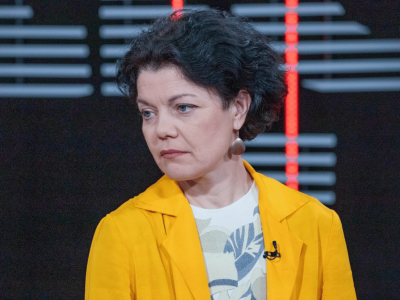
According to the Helsinki Foundation for Human Rights, the reintroduction of a temporary ban on entry into the border zone with Belarus by a regulation of the Minister of the Interior and Administration will lead to further human rights violations and aggravation of the humanitarian crisis that has been ongoing since 2021.
The introduced ban will be a serious obstacle to activists helping the victims of the humanitarian crisis.
The ban will make it more difficult for them to monitor compliance by border guards and other formations operating in the border area and to document human rights abuses and violations.
The absence of the media means that the public will not receive reliable information about the situation at the border.
According to the HFHR, the government has not yet justified the introduction of the ban in a way that would dispel doubts about its purpose. It has not explained how the ban on staying in the border zone would have an impact on averting the humanitarian crisis at the border or limiting migration flows from Belarus. The context of Russia's all-out aggression against Ukraine does not change this, although state security considerations are undoubtedly even more important now than before.
Therefore, we cannot consider introducing the ban to be in line with the standards of a democratic state governed by the rule of law.
The regulation was issued on the basis of Article 12a of the State Border Protection Act, which raises serious doubts as to its compatibility with the Constitution of the Republic of Poland. The Foundation has previously pointed out that this provision was inserted into the Act by the previous parliamentary majority in order to circumvent the provisions on the introduction of a state of emergency. This gave the minister responsible for internal affairs far-reaching powers and freedom to introduce a temporary ban on entering the border zone.[1] The Ombudsman also pointed out that this provision does not meet the constitutional requirements for regulations introducing restrictions on the exercise of rights and freedoms, especially if these restrictions are to be imposed by acts of secondary legislation (regulations)[2].
Violation of the prohibitions in the regulation is punishable by a fine or even detention. According to the Foundation, the courts will ultimately have to assess the constitutionality of the said regulations and the admissibility of penalties for violations of the ban on entering the border zone.
We would like to remind our readers that the border crisis, even if caused by the Belarusian authorities' deliberate actions and services, does not release the Polish authorities from the obligations arising from international treaties binding on Poland and European Union law.
The Foundation also strongly opposes the language used in the political debate on the humanitarian crisis on the Polish-Belarusian border.
The dehumanising language used in the political debate is not conducive to a constructive discussion on migration.
The use of terms such as "illegal immigrants", and the public denial of the fact that there are also people seeking international protection among the migrants. Last but not least, the claim that holding a Belarusian or Russian visa disqualifies migrants as potential refugees or prevents them from becoming victims of human rights violations misleads the public. Such statements can lead to the legitimisation of violence and human rights violations that constantly occur at the Polish-Belarusian border.
It should be remembered that in a pushback situation, there is no way to decide who the person being pushed back is and what the reason for crossing the border was. Moreover, it is then impossible to know what dangers are associated with their return to Belarus or to their country of origin, or what risk to the security of the Polish state is associated with their possible – and very likely – repeated attempts to cross the border to Poland in an undocumented manner.
The Helsinki Foundation for Human Rights notes with concern that the public debate on migration is increasingly collapsing.
In a report on the language of the election campaign for the Sejm and the Senate, the foundation warned that even the parties that describe themselves as liberal and are part of the current government have begun to adopt anti-migrant narratives and normalise xenophobic statements.[3] In recent months, the tendency to stoke fear of migrants and dehumanise them has only increased. Whilst using this type of narrative may bring short-term political benefits in the form of more votes, in the long term it can only lead to an exacerbation of social tensions and the justification of unacceptable systemic and individual acts of violence. Focusing public attention only on the threat in border areas and the need to defend against the “migrant onslaught” obscures the phenomenon of the instrumentalisation of migration and prevents its proper analysis from the point of view of both security and respect for the law. It also ignores the situation and needs of local communities living in border areas, who do not receive systematic state aid and are the real victims of previous and newly introduced restrictions.
The isolation of the border area can only deepen the crisis of the rule of law and respect for human rights. Instead of "zones of hidden violence" at the borders, where dehumanisation is part of everyday life, solutions are needed that guarantee respect for the rights of migrants, including in the situation of their return from Polish territory, as well as decent and safe working conditions for border guards and other formations.
The Helsinki Foundation for Human Rights has always provided and will continue to provide legal assistance to all humanitarian workers who face repression in connection with their activities.
On behalf of the Board of the HFHR,
Maciej Nowicki
President of the Board
[1] Comments of the Helsinki Foundation for Human Rights on the Act amending the State Border Protection Act and certain other acts, 22 November 2021, https://archiwum.hfhr.pl/wp-content/uploads/2021/11/nowelizacja-ustawy-o-ochronie-granicy.pdf.
[2] Opinion of the Ombudsman for the Senate on the Act amending the State Border Protection Act and certain other acts (Senate print no. 569), 22 November 2021, https://bip.brpo.gov.pl/sites/default/files/2021-11/Do_Senatu_granica_panstwowa_22.11.2021.pdf.
[3] Ksenofobia w natarciu. Monitoring mowy nienawiści w kampanii wyborczej w 2023 r. (Xenophobia in the onslaught. Monitoring hate speech in the 2023 election campaign), https://hfhr.pl/upload/2024/02/raport-ksenofobia-w-natarciu.pdf.


